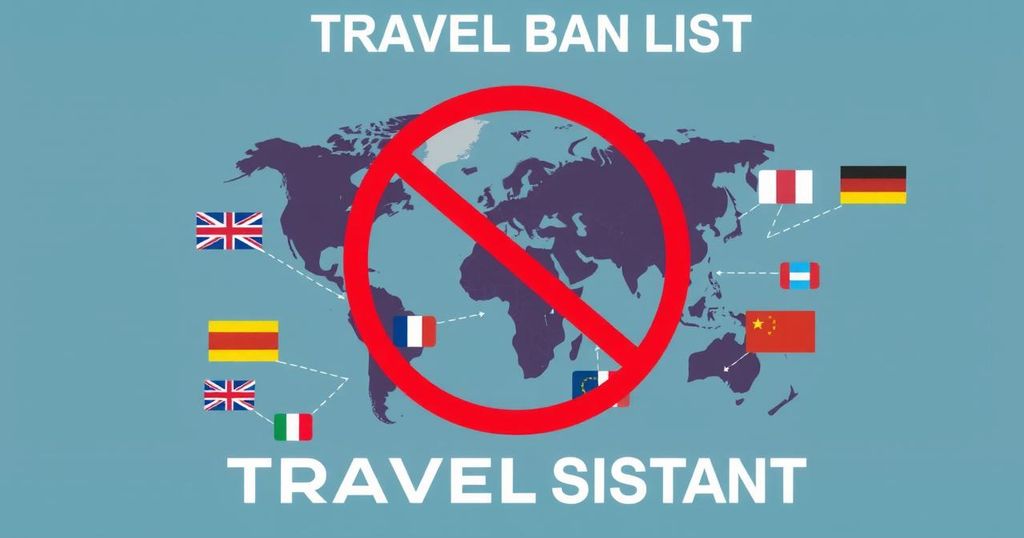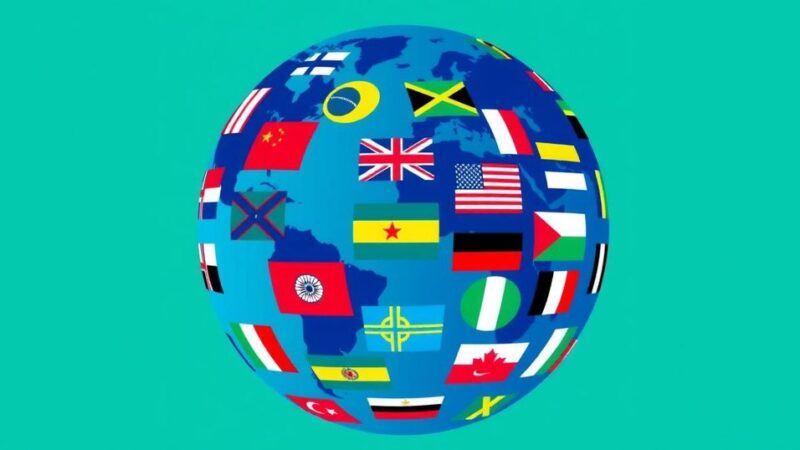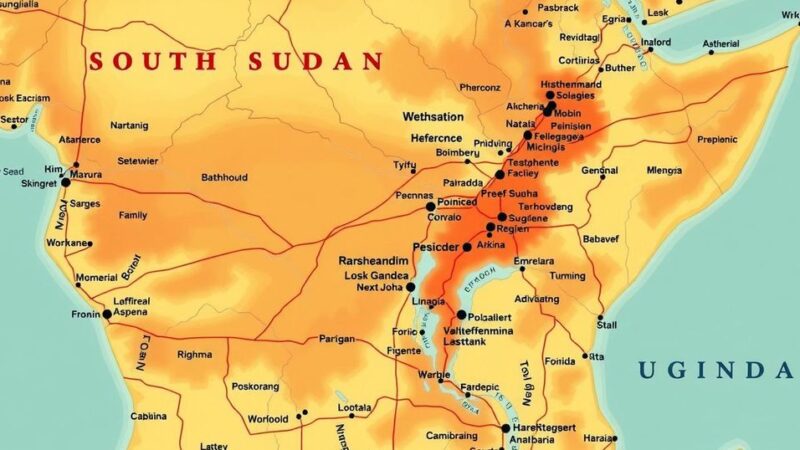Bhutan and Afghanistan appear on the U.S. travel ban list, while Pakistan faces limited restrictions. This action follows a 37% rise in visa violations by Bhutanese nationals. The draft travel ban, encompassing three categories, aims to address national security concerns and irregular migration patterns, impacting visa issuance for citizens. Bhutan’s government has opposed this classification, and uncertainties remain for current visa holders under new policies.
The United States has included Bhutan in its draft travel ban list, categorizing it alongside Afghanistan as a banned nation, while placing Pakistan in a slightly less severe category. This decision follows a reported 37% rise in visa violations by Bhutanese nationals, prompting the U.S. government to address “national security concerns” and “irregular migration patterns.” The Trump administration’s comprehensive travel ban plan encompasses various countries with differing levels of restrictions.
The draft list, developed by U.S. officials, includes three color-coded categories: Red, Orange, and Yellow. The Red category, which prohibits entry, includes countries such as Bhutan, Afghanistan, and others. The Orange category indicates limited travel restrictions for countries like Pakistan, where only certain travelers may gain entry after undergoing mandatory interviews. The Yellow list allows for a review process to rectify perceived deficiencies within a set timeframe.
Bhutan’s placement on the travel ban list arises from an increase in visa violations among its citizens, suggesting concerns regarding overstaying visas and misuse of entry paths to the United States. In response, Bhutan’s government has formally requested a reassessment of this designation, asserting that its citizens do not present significant security threats to the U.S.
The implications of the travel ban for Bhutanese citizens may include a more rigorous scrutiny of visa applications, extended processing times, and potential outright rejections. Existing visa holders and green card holders face uncertainties regarding their status under these new regulations, with the government’s approach towards existing permissions remaining ambiguous.
Historically, President Trump’s travel bans have faced scrutiny and legal challenges, particularly the initial ban which predominantly targeted Muslim-majority nations. Biden later repealed this ban, criticizing its adverse implications. Nonetheless, Trump has indicated intentions to reinstate similar restrictions if he regains the presidency in the future, pledging to implement drastic measures to safeguard national security.
The inclusion of Bhutan in the U.S. travel ban highlights ongoing concerns regarding visa violations and security. As Bhutan navigates this situation, uncertainties about visa statuses affect both current and prospective travelers. The historical context of travel bans underscores the complex interplay between national security and immigration policies, with potential impacts on international relations. The future of U.S.-Bhutan relations may be contingent on the outcomes of Bhutan’s appeal and the evolving political landscape.
Original Source: www.news18.com






